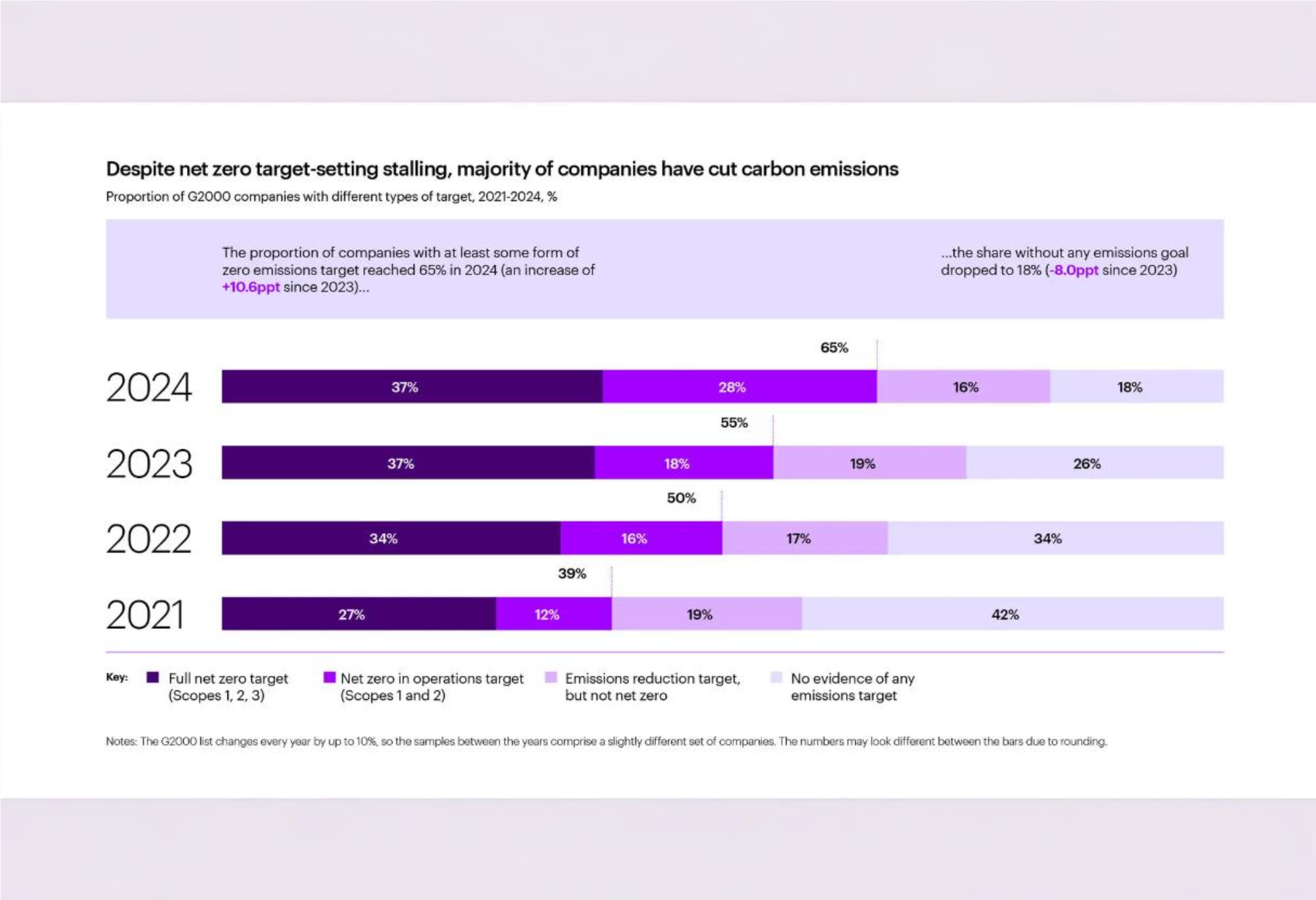Only 16% of the world’s largest companies are on track to achieve net zero emissions by 2050, while nearly half (45%) continue to raise their carbon outputs, according to new data from Accenture’s “Destination Net Zero” report. Now in its fourth edition, the report examined net zero targets, emission-cutting actions, and carbon data from the top 2,000 companies globally. The findings show that although net zero target-setting has stalled at 37%, over half (52%) of these companies have managed to reduce both carbon emissions and emissions intensity since the Paris Agreement’s adoption in 2016.
A core insight from the report is the limited use of artificial intelligence (AI) in emission reduction efforts. Currently, only 14% of companies are leveraging AI for decarbonisation, though AI holds promise in accelerating carbon reductions across industries. Stephanie Jamison, Accenture’s global sustainability services lead, noted that only 22% of companies using AI apply it specifically to decarbonisation efforts. Accenture projects that AI-related emissions may increase more than tenfold by 2030, from 68 million to 718 million tons of CO2e, unless innovation in energy and computing technology progresses significantly. Despite this, 65% of business leaders expect AI will reduce emissions over the long term.
Accenture’s report also outlines the increasingly standardised practices businesses are adopting to support net zero goals, such as energy efficiency, waste reduction, renewables, circularity, and decarbonisation of buildings—practices now embraced by over 80% of companies. European companies are leading the way, with nearly half (48%) implementing 15 or more decarbonisation strategies, surpassing their Asia-Pacific and North American counterparts by over 20 percentage points. European businesses are also more likely to use AI in emissions reductions, with 20% of firms in the region employing AI for decarbonisation, compared to 14% in Asia Pacific and 10% in North America.
Highlighting the region’s leadership, Mauro Macchi, Accenture’s EMEA CEO, referenced the recent Draghi report that emphasises Europe’s need to align decarbonisation efforts with competitiveness. Accenture has bolstered its sustainability services, expanding expertise in ESG and carbon intelligence, supply-chain transformation, green IT, and sustainable decision-making. An example of this is Accenture’s custom large language model for ESG reporting, built with Meta Llama 3.1, which assists businesses in aligning their ESG disclosures with regulatory standards and boosts productivity in ESG data preparation by up to 70%.
